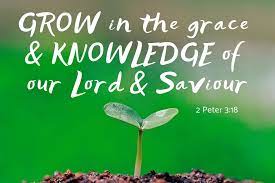For God’s Praise
Just as He chose us in Him before the foundation of the world, that we should be holy and without blame before Him in love, having predestined us to adoption as sons by Jesus Christ to Himself, according to the good pleasure of His will, to the praise of the glory of His grace, by which He has made us accepted in the Beloved. Ephesians 1:4-6
Last week we explored the meaning of “in Christ”. In Christ describes our identity with Christ and our position before God the Father. Our new identity incorporates the personality of Christ by the Holy Spirit indwelling our heart. Being in Christ makes available to us everything that Christ has: His righteousness, privilege, resources, position, and power. This week we’ll continue our discussion of spiritual blessings by focusing on its primary source: God.
Go to the Source
The source of spiritual blessings is God, The Faithful Creator and Sustainer of Life. These blessings are available through God’s plan of salvation for those who by faith are in Christ. God’s plan was not “Plan B” or an afterthought as a result of man’s fall in The Garden (Genesis 3:15) but was created in eternity before the foundations of the world. “With the precious blood of Christ, as of a lamb without blemish and without spot. He indeed was foreordained before the foundation of the world but was manifest in these last times for you” (1 Pet. 1:19-20).
The Old Testament prophets declared the plan of God to redeem and restore His people for their sake and for His glory (Isaiah 43:21). The Lord proclaimed through Jeremiah: “I will cleanse them from all their iniquity by which they have sinned against Me, and I will pardon all their iniquities by which they have sinned and by which they have transgressed against Me. Then it shall be to Me a name of joy, a praise, and an honor before all nations of the earth, who shall hear all the good that I do to them; they shall fear and tremble for all the goodness and all the prosperity that I provide for it.” (Jeremiah 33:8)
Believers are receivers
God chose man from Creation to be the recipient of His great love, desiring to be in continual relationship with His most beloved creature. However, the nature of God, His holiness, specifically, demanded that believers be “holy and without blame” before Him (1 Pet. 1:15-16). God declared, therefore, the means by which man would be able to meet His requirement for holiness: His Son, Jesus Christ.
Through God’s predetermined plan, He adopted those in Christ to become His sons (and daughters) (Rom. 8:15-16). By God’s act of grace (being chosen and adopted) and mercy (Christ’s substitutional death for sins), we are now clothed in Christ’s righteousness (imputed), making the pursuit of holiness (blamelessness) possible. With the addition of the Holy Spirit’s presence, we are able “to both will and do God’s good will” (Phil. 2:13).
God’s affection for us speaks to the true heart and nature of God. It expresses God’s goodness. While God’s goodness includes, His love and His mercy, Paul speaks of the “glory of God’s grace” (charis) expressed in the free gift of His Son. God’s grace, resulting in our salvation and justification (rendered righteous) before God (Rom. 5:1O), deserves our highest praise. Hallelujah, we are now acceptable to God through Jesus Christ!
Blessings from a Sovereign God
In Ephesians, we are reminded that God as Sovereign of both heaven and earth does all things “according to the good pleasure of His will” (Eph. 1:5) and “according to the counsel of His will” (Eph. 1:11).
God sovereignly rules over all things—present and future. He rules with wisdom, justice, and mercy, therefore, we can trust our present and our future in His hands (Rom. 8:28) regardless of what is happening in our external circumstances (2 Cor. 4: 18).
Chosen by God. Holy and blameless in Him. Adopted as sons. Accepted by God. These are the beginnings of the spiritual blessings God has lavishly given to us who are in Christ. Taken individually, we can begin to understand and appreciate the privilege, power, and promise that flow from each (2 Pet. 1:3-4). With each action of God, we are invited to respond by participating in the establishment of the Kingdom of God on earth and in witnessing to others about the Good News of Jesus Christ. Let everything that has breathe praise the Lord for all He has done and continues to do for us who are in Christ!










